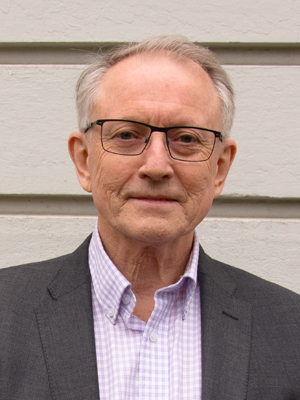Hallén succeeds Anton Eliassen, who has been the leader of the board since 2010. The Bjerknes Centre became a Norwegian Centre of Excellence in 2003, as part of the first generation that received basic funding from the Research Council of Norway as Centres of Excellence.

“The Bjerknes Centre early succeeded in being exactly what we wished these centers would be: not just clusters of power in the Norwegian research environment, but also internationally visible”, says Hallén.
Today, more than 200 persons from 38 countries are affiliated with the Bjerknes Centre.
“As a result, it was also reasonable that this was one of the few centers that were ensured a more permanent funding, following the Center of Excellence period”, Hallén continues.
Climate change sets the agenda
Arvid Hallén ended his term as Director General of the Research Council on March 1st, a position he has held since 2004. In this period, he has observed that societal challenges to a larger and larger degree decide the research agenda, not the least for climate change, which has been a clear priority.
“We realize that we notice the changes, more or less, from year to year. Unfortunately, it becomes more and more clear that we are part of a change that it is important to have the best knowledge about.”
Hallén points to the climate system and the question of how society should adapt to a changing climate as topics with a crucial need for more knowledge.
“The Bjerknes Centre has most weight on the first, but touches into most”, says Hallén.
A future depending on knowledge
Hallén says that the last years have been a period of strong growth in Norwegian research. Private investment in research has increased, but not the least the use of public funds. He is uncertain whether the growth we have witnessed during the last years can continue, but does not doubt that there will still be growth and further emphasis on research.
“Not only do large societal challenges demand a solid knowledge base, but challenges related to necessary changes at all levels in the society, including for private enterprises, makes the society more dependent on knowledge. Research and higher education will be part of securing this knowledge base.”
The director of the Bjerknes Centre, Tore Furevik, says he is very pleased that Arvid Hallén has accepted the position as leader of the board. He emphasizes Hallén’s competence in the interaction between policies and research as important for the center.
The new board
Sebastian H. Mernild is also a new member of the board of the Bjerknes Centre, as the new director representing the Nansen Environmental and Remote Sensing Center. Mernild’s field of research is within climate, glaciology and hydrology. He came to Bergen from Århus in Denmark and has spent most of his science career in Copenhagen, Alaska, New Mexico and Chile. He has also served in the NATO forces in Kosovo and Afghanistan.
In addition to Arvid Hallén and Sebastian H. Mernild (Nansen Environmental and Remote Sensing Center), the board members are Anne Lise Fimreite (University of Bergen), Geir Huse (Institute of Marine Research) and Carin Andersson Dahl (Uni Research).

